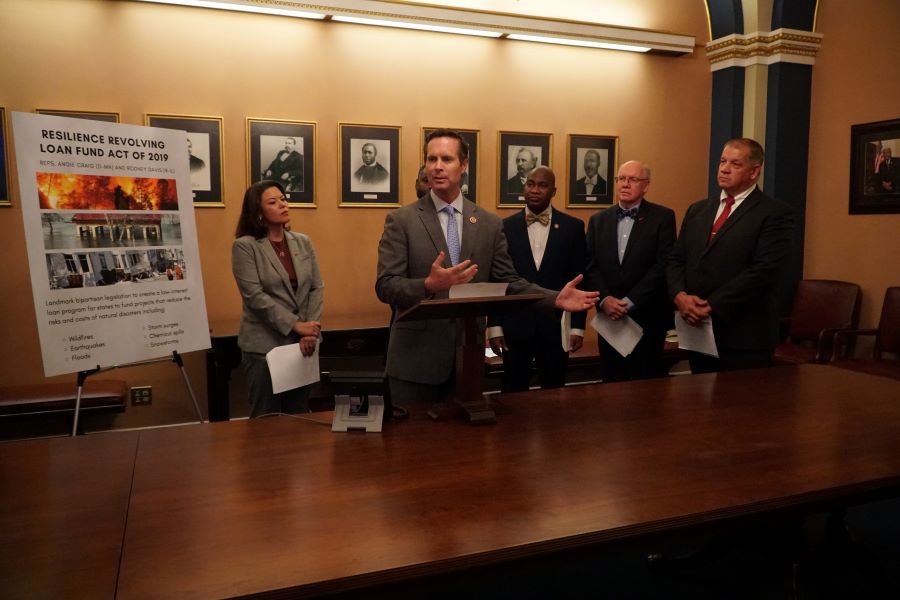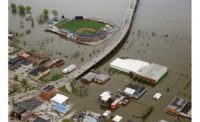Federal lawmakers from the Midwest, still reeling from long-lasting river flooding, have rolled out a bill to establish a $100-million low-interest federal revolving loan fund for resilience projects.
H.R. 3779, which Reps. Angie Craig (D-Minn.) and Rodney Davis (R-Ill.) introduced on July 24, would provide loans totaling $100 million to any community to construct infrastructure to make them more resilient.
When the loans are repaid, that money would replenish the loan fund and become available for future disaster relief.
"That's what communities want to do, they don't want to be calculating disaster costs, then go beg FEMA for a disaster declaration every time something happens," Davis says.
Mayor Rick Eberlin, of Grafton, Ill,, stressed that he and other mayors were "not asking for a handout.” He said, “We’re simply asking for a helping hand. And I believe this bill and this loan fund will do that for all of our communities.”
The bill largely mirrors requests made in March by the Mississippi River Cities and Towns Initiative, a coalition of nearly 80 mayors and other officials from communities along the river.
Craig said at a press conference to announce the bill's introduction, "I heard from mayors across my district, including Mayor Sean Dowse from Red Wing, Minn., that the severity of this year's spring floods overwhelmed communities and stretched already limited resources beyond their breaking points,"
She added, "It's clear that natural disasters are getting deadlier and more severe and they are costing our communities money, displacing families, delaying farmers planting seasons, and impeding local businesses."
The measure, drafted with help from FEMA, would fund projects such as floodplain mapping, levee reconfiguration and port protection.
Loan proceeds could also be used for natural infrastructure, such as wetlands, marshes, riparian buffers, reconnected floodplains and reconnected backwater areas. The American Society of Civil Engineers supports the legislation. Rep. Dina Titus (D-Nev.), who chairs the subcommittee on economic development, public buildings and emergency management, said that she will schedule a quick vote to get the bill through to the House floor.
Titus said, "There is a lot of support for it in our committee. We've been working with FEMA, so I think you'll see it moving rather quickly."
She added, "Mr. Davis and I worked with a lot of the mayors around the country, I would say, to encourage their members, both Republicans and Democrats, to get on board with this bill as quickly as possible."
Davis, whose district includes many towns along the Mississippi and Illinois rivers, sponsored a bill passed last year, the Disaster Declaration Improvement Act, to change the funding formula for disaster relief.
He said it was premature to say what the new measure could lead to or how eventual passage could happen.
"Let's not jump ahead of ourselves," said Davis, who serves on an authorizing committee for FEMA programs.
He added, "Once we have the authorizing language, we then can go in and fight for appropriations dollars. But it starts with the committee that we all serve on."
It was also not clear exactly where initial funding for the $100 million fund could come from in the federal budget. But Davis said, "This is a one-year program."





